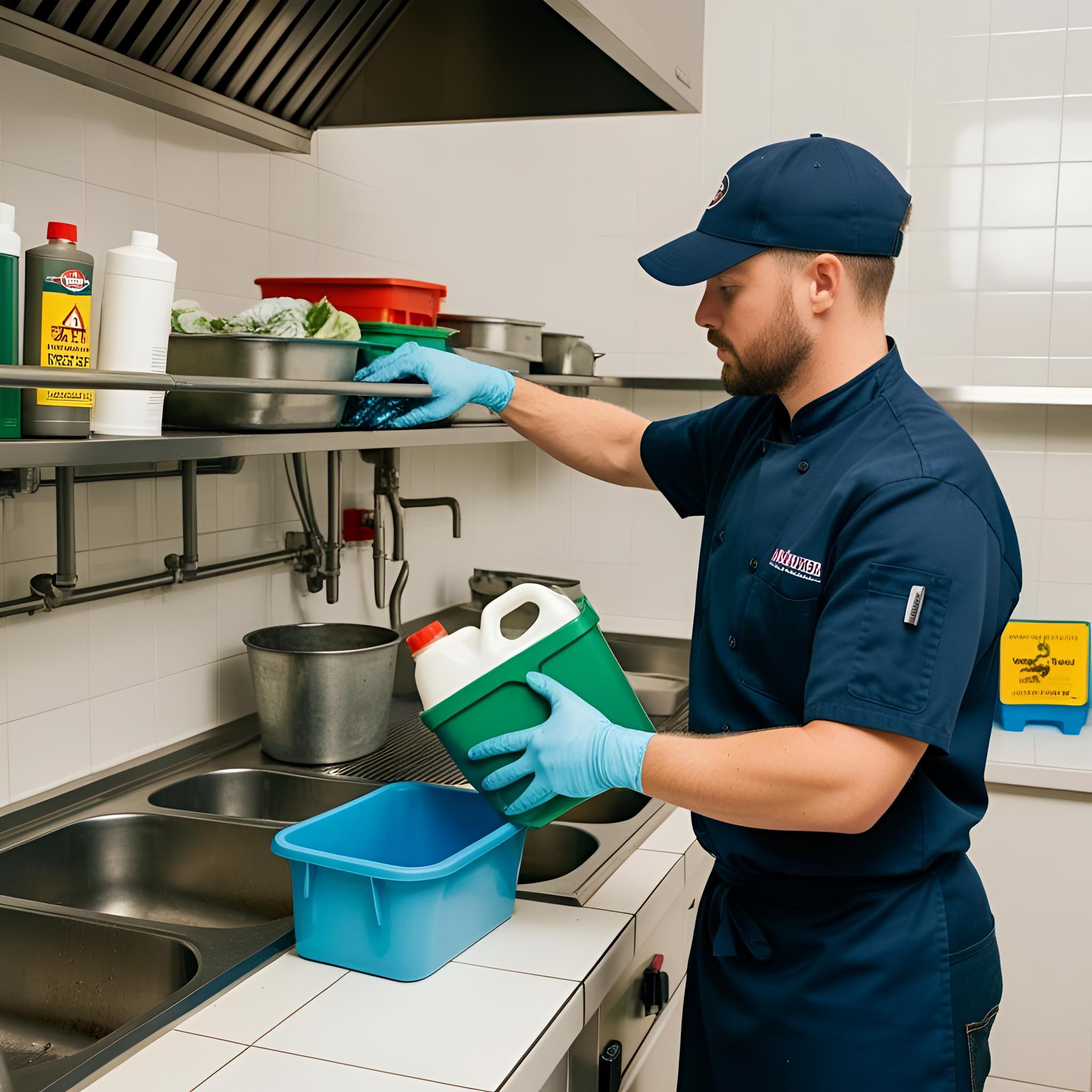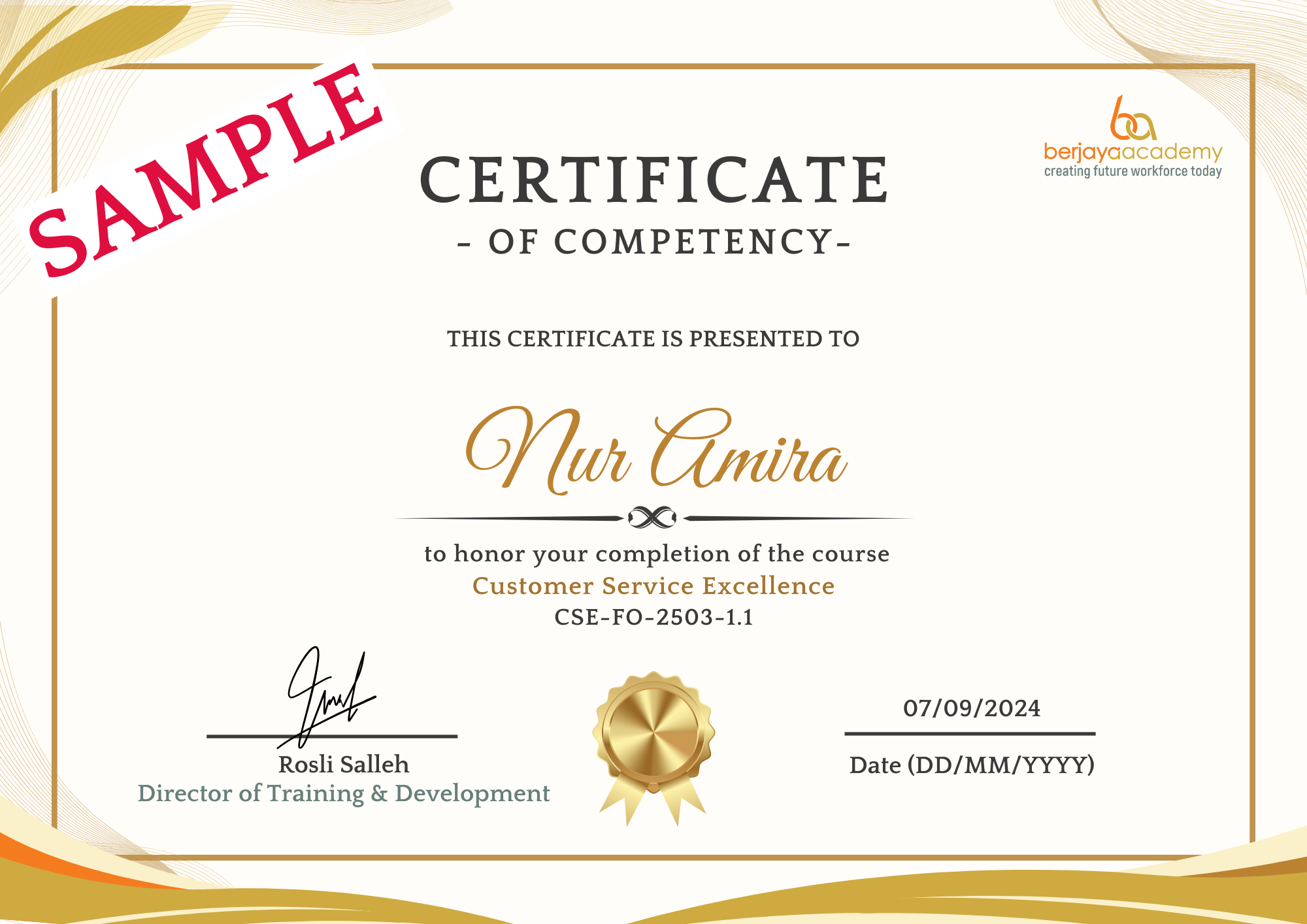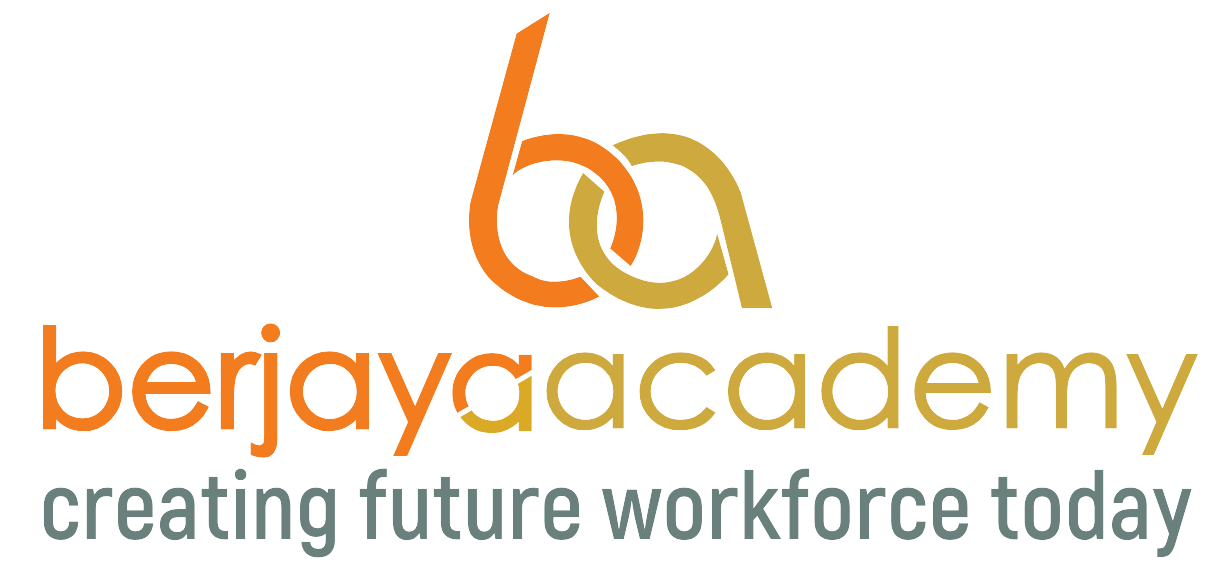
Course Details
Course Title: Wastewater and Chemical Safety
Course Code: WCS-KS-2503-1.1
Course Accreditation
Accreditation Type: Certificate of Competency
Course Duration
Total Course Hours: 8 hours (1 day)
Course Fee
Total Course Fee: S$180/pax
Funding Available (If Applicable):
- Training Industry Professionals in Tourism (TIP-iT)
- NTUC Company Training Committee (CTC) Grant
Summary
Topics:
- Safe disposal of kitchen waste and wastewater.
- Safe disposal of kitchen waste and wastewater.
- Handling and storing cleaning chemicals properly.
- Environmental compliance for waste management.


Learning Objectives for Wastewater and Chemical Safety for Kitchen Staff
By the end of this course, participants will be able to:
- Demonstrate safe disposal practices for kitchen waste and wastewater, ensuring compliance with environmental regulations.
- Handle and store cleaning chemicals properly, minimizing risks to health and the environment.
- Understand and comply with environmental regulations and standards for waste management in the kitchen, ensuring sustainability and safety.
Learning Units for Wastewater and Chemical Safety for Kitchen Staff
Unit 1: Safe Disposal of Kitchen Waste and Wastewater
- Objective: Understand and implement proper practices for the disposal of kitchen waste and wastewater to prevent contamination and environmental damage.
- Content:
- Types of kitchen waste: organic waste, recyclables, hazardous waste, and general waste.
- Safe disposal methods for wastewater, grease, and food scraps.
- Preventing blockages in plumbing systems by disposing of waste correctly.
- Regulatory standards and guidelines for waste disposal in commercial kitchens.
Unit 2: Handling and Storing Cleaning Chemicals Properly
- Objective: Ensure safe handling and storage of cleaning chemicals to protect kitchen staff, the kitchen environment, and the health of consumers.
- Content:
- Overview of common cleaning chemicals used in kitchens (e.g., degreasers, disinfectants, sanitizers).
- Reading and understanding chemical labels, Safety Data Sheets (SDS).
- Proper storage techniques for chemicals (e.g., keeping them in original containers, away from food areas, and in designated areas).
- Safe handling procedures, including the use of PPE (Personal Protective Equipment) when handling chemicals.
Unit 3: Environmental Compliance for Waste Management
- Objective: Comprehend and comply with local and international environmental regulations related to kitchen waste and chemical disposal.
- Content:
- Key environmental regulations and guidelines for commercial kitchens (e.g., waste disposal, air quality, and water conservation).
- The concept of sustainability in kitchen operations, including reducing waste and reusing materials.
- Compliance with local health and environmental authorities (e.g., Environmental Protection Agency, local health department).
- The importance of record-keeping for waste management practices.
